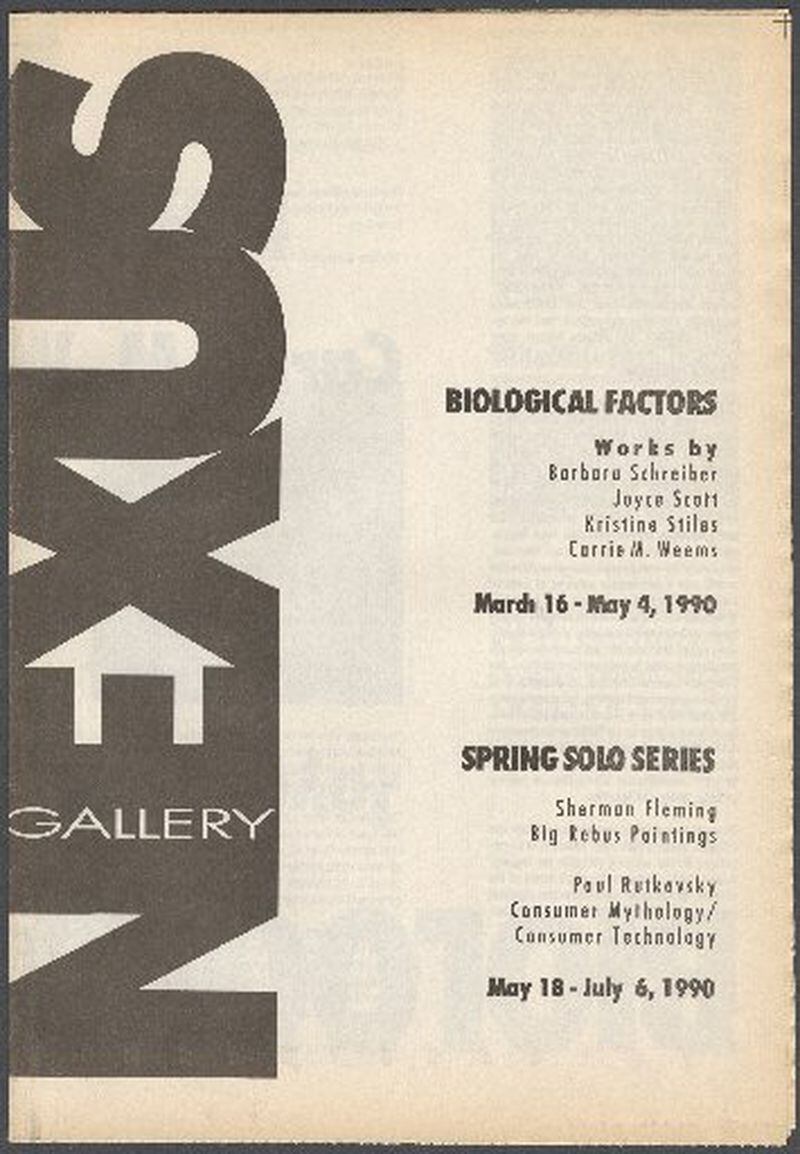Emory University's Manuscript, Archives, and Rare Book Library (MARBL) makes national headlines when it acquires major collections such as Alice Walker's (in 2007) and Flannery O'Connor's (2014). But its collecting goes wider and deeper than such literary greats.
A growing strength — documentation of the history, culture and politics of Atlanta — received a major boost with Tuesday's announcement that MARBL has acquired the institutional papers of Atlanta Contemporary Art Center.
“The acquisition is a recognition of our institution’s rich, 42-year history and legacy,” Julie Delliquanti, the Westside art center’s executive director said in the announcement. Delliquanti called the records “a history that deserves to be researched, studied and considered by researchers, scholars, artists, students and the general public who are interested in the arts, history and politics of Atlanta and the critical role that the Contemporary has played in the region.”
The collection — more than 120 linear feet of material — includes administrative records, exhibition files, exhibit catalogs, newsletters, promotional matters, press releases, photographs of exhibitions and events of the Contemporary (and its predecessor, Nexus Contemporary Art Center) and rare artist books produced by Nexus Press.
It joins a growing list of MARBL materials that examine the arts in Atlanta, including the records of the Fay Gold Gallery; Get This! Gallery; the Southeast Arts, Media and Education Project (SAME); and the picture albums of Atlanta photographer Allicq Royce Soble.
“The arts in Atlanta are a compelling part of (Atlanta’s story of transformative growth), a story that researchers, whether they are students, researchers or just members of the public, will be interested in over the long term,” MARBL Curator of Modern Political and Historical Collections Randy Gue told the AJC.
Credit: hpousner
Credit: hpousner
The Contemporary’s and other Atlanta cultural records collectively “tell an important story, the story of a time period that laid the groundwork, the foundation, for the flourishing arts scene in Atlanta today,” Gue said.
“In addition, it is important to me personally to show that Atlanta — artists in Atlanta and Atlanta residents — participated in the national and international arts scene and dialog,” Gue continued. “We may always hear about New York City, Los Angeles and other places but everything that went on in those places happened here too, just on a smaller scale.”
Materials from the collection will be on display in the changing exhibit “Artists’ Books and Archives from Atlanta Contemporary Art Center, Nexus Contemporary Art Center, and Nexus Press” at Emory’s Robert W. Woodruff Library from Aug. 20 through May 15, 2016.
Part of Enory’s Robert W. Woodruff Library, MARBL focuses its collections in the following areas: Atlanta and Southern politics and history; African American history and culture; modern literature and poetry; Emory University Archives; and rare books.
Meanwhile, the Contemporary is itself pausing to consider its past, with the recently opened exhibit "Endless Road: A Look at Nexus Press." It continues on view through July 25.
About the Author







